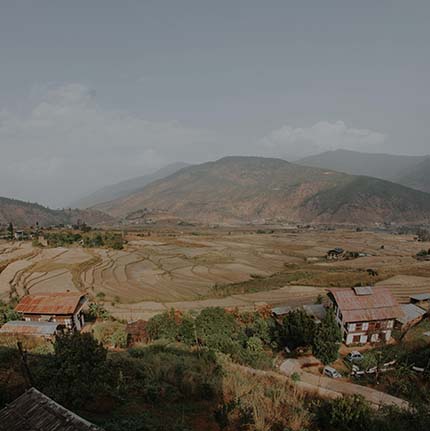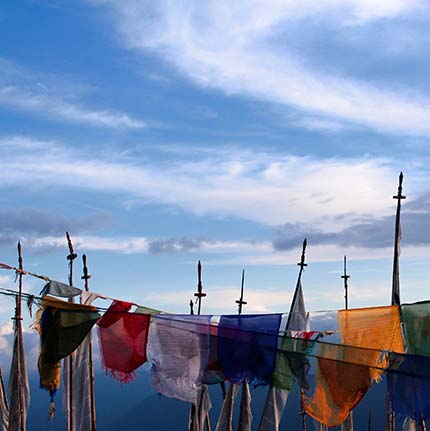Economy
of Bhutan

Agriculture in Bhutan

Tourism in Bhutan

Economy of Bhutan
Agriculture in Bhutan
with agriculture being one of the major and oldest factors of livelihood of the country, more than 60% of the population rely on agricultural income. Export of cash crops, subsistence farming and animal husbandry are some of the economic generating factors for the country and its citizens.
Trade activities with the neighboring countries has allowed Bhutan to achieve economic growth in the past decades and is still benefiting from it. The government is constantly developing roads, buildings and infrastructure for better trade experience for both import and export of materials.
Tourism in Bhutan
A sustainable tourism industry that has a “High Value, Low Impact” philosophy. The government aspires to provide high end experience for the tourists without jeopardizing its natural environment and culture.
The government intends to avoid mass tourism by limiting the visitors to genuinity of their visit to the country. Countries apart from India, Bangladesh, and Maldives have to pay a daily tariff of $250. The industry has provided numerous employment opportunities and is the second largest revenue generating industry.
Hydroelectricity
The only carbon-negative (absorb more carbon than they produce ) country with 70% forest cover and fast flowing rivers allows Bhutan to produce clean energy. One form of clean energy that Bhutan exports and generates large economic revenue is from Hydroelectricity. Hydropower has been one of the major revenue generating sectors since 2000, with up to 27% of the total economy and 14% contributed to the (GDP) Gross Domestic Product of the country.
Economy of Bhutan
As of December 1st 2020, the pandemic hasn’t posed severe threats to the citizens of the country but it has greatly impacted the economic growth with 0.6% drop.
The country experienced two prolonged lockdowns that hampered the overall economy.
Economic recovery will highly depend on the policies of the government to tackle the pandemic. With over 90% of the population vaccinated, the country is already under process of relaxing small-scale trade activities with the neighboring countries.

